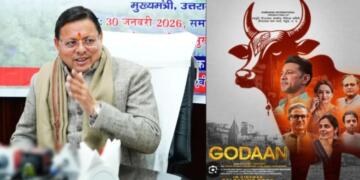Real Face of Manoj Muntashir: We heard once, “Appearances can be deceptive”. However, with each statement of lyricist cum screenwriter Manoj Muntashir, this adage has acquired a whole new meaning.
Let’s have a relook at Manoj Muntashir’s public persona, built upon his prolific body of work, and why it is being re-examined and critiqued due to recent controversies revolving around his personal beliefs and professional choices.
Unveiling the bitter truth
One such controversy that has led to intense public scrutiny and outrage is Muntashir’s involvement in “Adipurush,” a large-scale film adaptation of the revered Ramayana. The movie generated substantial anticipation before its release, largely due to its epic source material and the pedigree of those involved in its creation. However, Manoj Muntashir, entrusted with dialogue writing, managed to spark a significant controversy due to the inclusion of contentious and, as some audiences felt, ‘blasphemous’ dialogues.
Also read: Adipurush Crash: Never ever underestimate the public
These controversial dialogues in “Adipurush,” viewed as offensive and inconsiderate towards Hindu sentiments, ignited a wave of criticism against Muntashir. Audiences and critics alike voiced their disappointment and anger, believing that Muntashir, through his script, had knowingly and intentionally penned dialogues that could be deemed disrespectful towards an ancient and cherished religion. In response to this uproar, Manoj Muntashir defended his work rather than issue an apology, thereby fuelling the public’s growing indignation.
The irony of the situation lies in Muntashir’s previously proclaimed devotion to Sanatana Dharma, a philosophy that forms an integral part of Hinduism. He often expresses his respect and commitment towards these age-old traditions. However, the fact that he chose to stand by the divisive dialogues in the movie, which many deemed disrespectful towards these very traditions, exhibits a striking contradiction.
Dharmic outside, apologist inside
In addition to this, Muntashir’s past statements and public positions have added further fuel to the fire. The lyricist, who rose to fame due to his popular YouTube revelations about Akbar, one of India’s most significant historical figures, has faced accusations of glorifying Akbar excessively. This critique is particularly intriguing given the fact that Muntashir had previously portrayed himself as a critic of Akbar and a supporter of the Mewari braveheart, Maharana Pratap, a historical figure considered to be Akbar’s chief rival.
The most intriguing aspect of Muntashir’s story, however, might be the stark contrasts that are evident in his personal life and background. Born as Manoj Shukla, he chose to adopt ‘Muntashir‘ as his pen name in a quest for uniqueness and individuality. ‘Muntashir,’ which translates to ‘scattered’ in English, was a word that resonated with him deeply and symbolized his journey as a poet. This symbolic transformation, however, was not limited to his name alone but also reflected in his ideological leanings and religious beliefs.
In an event organized by Jashn e Rekhta, Muntashir revealed the ideological chasm that existed between him and his father, who is a Purohit. He confessed, “My father is a Purohit, whenever he chanted the Shiv Stotra, I used to sing Islamic verses to counter him.” This admission highlighted Muntashir’s divergence from his family’s religious practices, further emphasizing the contradictions present in his persona.
Also read: The makers of Adipurush have done a grave injustice to Gen Z
Hypocrisy’s new symbol
Despite frequently expressing his love for Hindi and presenting himself as a champion of the language, Muntashir has been on record mocking Hindi’s existence and advocating for the widespread promotion of Urdu within the Hindi film industry. This stance has been seen as contradictory to his public image and raises questions about his authenticity and commitment towards Hindi, the language that has played a significant role in his success.
Moreover, these contradictions extend to Muntashir’s professional life as well. Despite his apparent disconnect with the essence of Sanskritised Hindi, he was chosen for the crucial role of dialogue writer for the first large-scale film adaptation of the Ramayana, “Adipurush”. Critics and audiences have argued that the movie lacked the soul and depth that are characteristic of the epic, indicating Muntashir’s influence may have negatively impacted its quality.
The revelations about Muntashir have led to a re-evaluation of his image, and as the public grapples with these contradictions, the chasm between the perceived Manoj Muntashir and the real Manoj Muntashir continues to widen. This incident serves as a critical reminder of the necessity for authenticity and transparency in the public sphere and underscores the influence and impact that artists and creators have in shaping cultural and societal narratives.
Support TFI:
Support us to strengthen the ‘Right’ ideology of cultural nationalism by purchasing the best quality garments from TFI-STORE.COM































